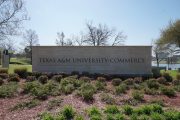
The leftist climate that has overtaken many college campuses across the United States has resulted in a general distrust of higher institutions among Republicans, a new survey shows.
A survey released this week by the Pew Research Center reveals that just 36 percent of Republicans polled believe that higher education has a positive effect on the nation, while 58 percent feel it has a negative effect. The Washington Post notes that those numbers represent a marked departure from just two years ago, when 54 percent of Republicans believed higher education was good for the nation, compared to 37 percent who viewed it as harmful. The only institution the Republicans in the survey distrust more than academia is the mainstream media.
It’s not too difficult to understand the recent reversal, however, given the dramatic cultural shift that has taken place on college campuses over the last several years. While institutions of higher education have seemingly always been a hotbed of liberalism and leftism, there appears to have been a shift even further left toward a more rabid, aggressive, anti-American, anti-white, anti-Christian ideology in recent years. Add to that the expansion of the PC movement and a population of snowflake millennials who are offended by anything and everything, and what’s left are college campuses that anyone with even the slightest affinity toward conservatism would like to avoid like a plague.
As a result, some colleges with conservative leanings are noticing an increase in admissions as parents are looking to send their children to schools that will not undermine everything they’ve taught them. For example, David Whalen, provost of Hillsdale College, which has a reputation for conservatism, told the Washington Times that he has noticed an uptick in admissions. Whalen attributes this to the pervasive culture on college campuses that ridicules conservative thought.
“The educational environment has become so distempered that, in many cases, parents are now looking elsewhere,” Whalen said. “In fact, more and more parents tell us at Hillsdale that they had assumed their children would go to this or that institution, but they are deeply grateful to find Hillsdale instead.”
Whalen contends it’s not simply that parents are hoping to avoid indoctrination of their children, but also violence and bullying of their children who may disagree with leftist ideologies. “Higher education has been progressively radicalizing for a long time, but recent events have brought the extent of it into high relief,” Whalen said. “It’s virtually beyond parody. Campus violence, suppression of speech and intellectual inquiry, and the rather haughty presumption of moral superiority undercut confidence that much of real value is going on there.”
In an op-ed for the Daily Caller, David Benkof takes this further, stating that Republicans have been branded the “prototypical villains” on college campuses and the demonization of right-leaning students has forced them into fearful silence.
And while the same survey shows that 72 percent of Democrats believe colleges and universities positively affect the nation, Michael Poliakoff, president of the American Council of Trustees and Alumni, contends that perceptions about academia do not necessarily fall along party lines, as individuals on both sides have become increasingly fearful that college campuses no longer respect the First Amendment.
“Perceptive thinkers of both parties have expressed very legitimate concerns about graduates who do not have appreciable respect for the First Amendment and are unable to rationally engage with social and political views other than their own,” Poliakoff said.
In just the last year, for example, student protestors at college campuses have shut down free speech events with speakers such as Milo Yiannopoulos, Ann Coulter, Ben Shapiro, and Charles Murray.
But besides the obvious bad behavior of leftists on college campuses, the other significant problem is the institutional leftist policies that isolate and alienate certain students. At Reed College in Oregon, for instance, students are being offered “all-inclusive, all-expenses paid” visits to campus for prospective minority students. The offer does not apply to white applicants.
“You are eligible for this program if you are a U.S. citizen or permanent resident who is a high school senior from historically underrepresented racial and ethnic backgrounds (African American, Latino, Asian American, Native American, Native Hawaiian or Pacific Islander) who is living with the U.S. or U.S. territories,” the program description reads.
Whalen contends that the continued movement toward radicalism on college campuses will not end well for the institutions, as it will destroy their reputations and could potentially cost them federal and private funding. “I expect the consequences of all this will be many and far-reaching,” he said. “Legislatures will restrict funding, endowments will be regulated, disciplines known for being radicalized will be taken less and less seriously while the flight to nonideological fields of study will increase, the attention paid to so-called experts in academia will continue to slide and the academic bubble will grow increasingly unreal.”
Photo: Clipart.com




